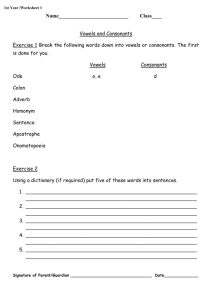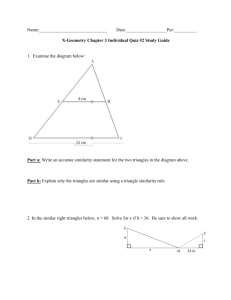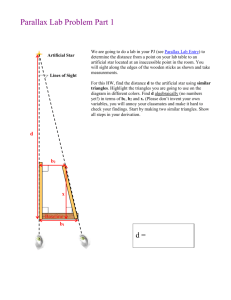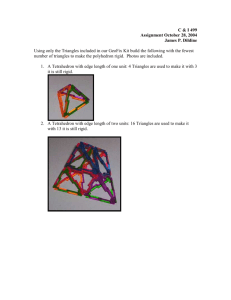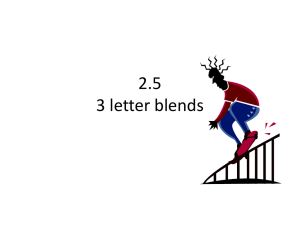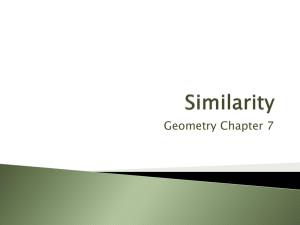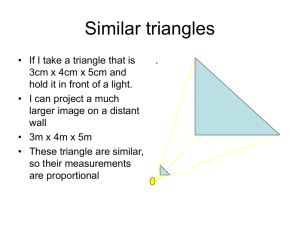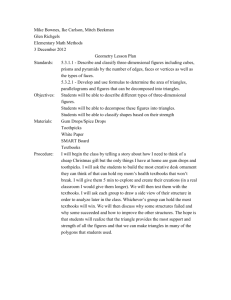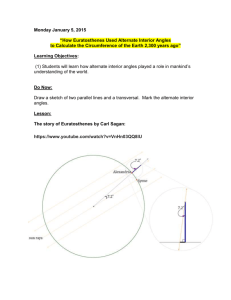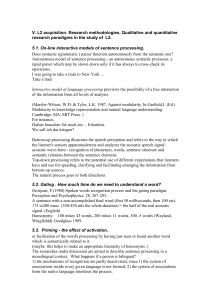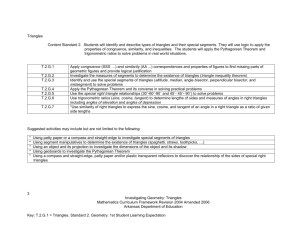Multiplication Principle:
advertisement
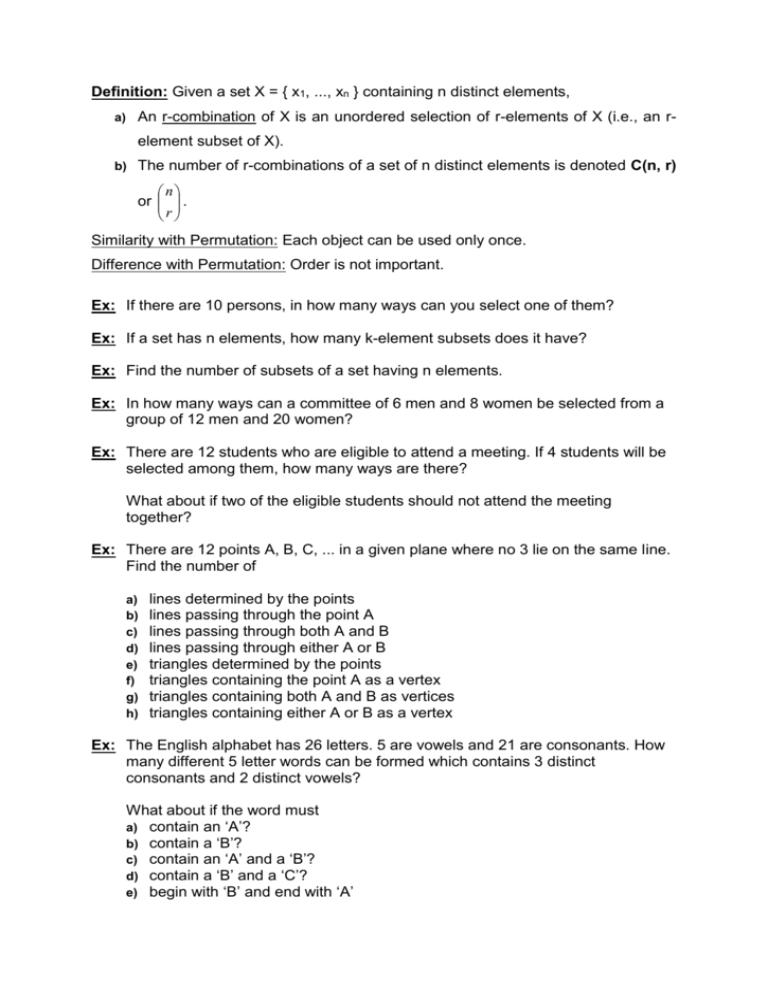
Definition: Given a set X = { x1, ..., xn } containing n distinct elements,
An r-combination of X is an unordered selection of r-elements of X (i.e., an r-
a)
element subset of X).
b)
The number of r-combinations of a set of n distinct elements is denoted C(n, r)
n
or .
r
Similarity with Permutation: Each object can be used only once.
Difference with Permutation: Order is not important.
Ex: If there are 10 persons, in how many ways can you select one of them?
Ex: If a set has n elements, how many k-element subsets does it have?
Ex: Find the number of subsets of a set having n elements.
Ex: In how many ways can a committee of 6 men and 8 women be selected from a
group of 12 men and 20 women?
Ex: There are 12 students who are eligible to attend a meeting. If 4 students will be
selected among them, how many ways are there?
What about if two of the eligible students should not attend the meeting
together?
Ex: There are 12 points A, B, C, ... in a given plane where no 3 lie on the same line.
Find the number of
a)
b)
c)
d)
e)
f)
g)
h)
lines determined by the points
lines passing through the point A
lines passing through both A and B
lines passing through either A or B
triangles determined by the points
triangles containing the point A as a vertex
triangles containing both A and B as vertices
triangles containing either A or B as a vertex
Ex: The English alphabet has 26 letters. 5 are vowels and 21 are consonants. How
many different 5 letter words can be formed which contains 3 distinct
consonants and 2 distinct vowels?
What about if the word must
a) contain an ‘A’?
b) contain a ‘B’?
c) contain an ‘A’ and a ‘B’?
d) contain a ‘B’ and a ‘C’?
e) begin with ‘B’ and end with ‘A’
